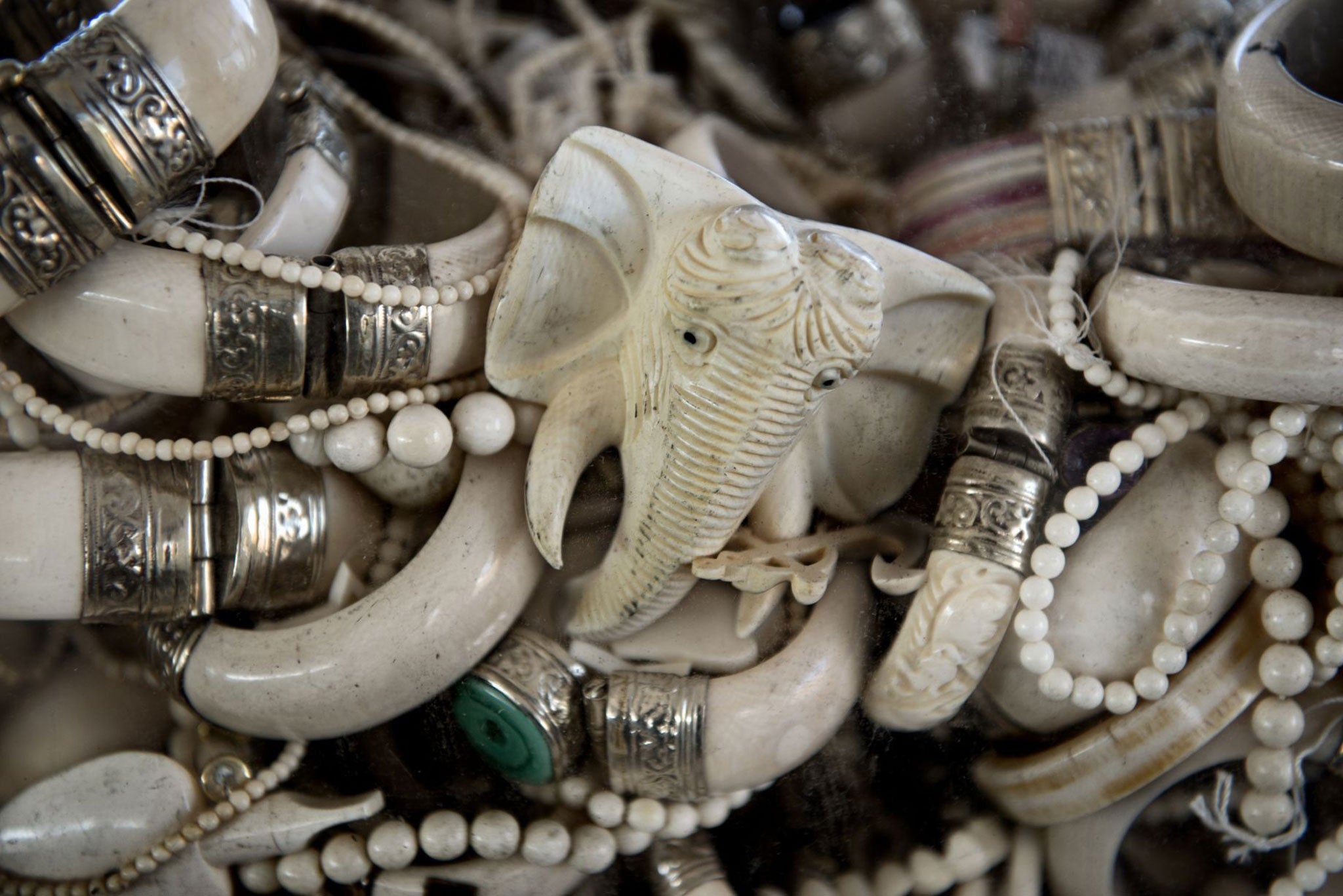Where the Chinese go to buy illegal ivory
Burmese town exposed as one of Asia’s biggest markets after thousands of trinkets are seized.

Your support helps us to tell the story
From reproductive rights to climate change to Big Tech, The Independent is on the ground when the story is developing. Whether it's investigating the financials of Elon Musk's pro-Trump PAC or producing our latest documentary, 'The A Word', which shines a light on the American women fighting for reproductive rights, we know how important it is to parse out the facts from the messaging.
At such a critical moment in US history, we need reporters on the ground. Your donation allows us to keep sending journalists to speak to both sides of the story.
The Independent is trusted by Americans across the entire political spectrum. And unlike many other quality news outlets, we choose not to lock Americans out of our reporting and analysis with paywalls. We believe quality journalism should be available to everyone, paid for by those who can afford it.
Your support makes all the difference.More than 3,000 pieces of carved ivory were found on the border between Burma and China last week by undercover researchers from Oxford Brookes University and Traffic, the wildlife trade monitoring network. The announcement of the discovery comes a week after China publicly destroyed 6.1 tonnes of illegal ivory to show its support for the fight against wildlife trafficking.
Some 3,300 carved pieces and 50 raw ivory elephant tusks were displayed in the Burmese market town of Mong La. Traffic, which has been monitoring the town since 2004, say that the volume discovered was higher than anything the organisation had seen before.
Originating largely from Africa, the ivory is thought to have entered the country via China as ready-carved pieces for sale mainly to Chinese tourists who frequent the tourist town. Traffic now believes that Mong La may have become one of Asia’s biggest unregulated ivory markets.
Though China has a parallel legal ivory market, due to a one-off sale granted by Cites (the Convention on International Trade in Endangered Species) in 2008 and various other loopholes, cross-border sales are illegal.
Burma also has its own legal market, which includes the legal sale of tips of tusks and tusks from government and privately owned elephants that have died of natural causes.
Dr Vincent Nijman, of Oxford Brookes University, said: “It is clear that neither Burma nor China are effectively enforcing Cites’ regulations, as ivory is evidently moving across the border.”
Dr Chris Shepherd, director of Traffic in South-east Asia, said: “Increasing volumes of ivory in an open cross-border market catering to Chinese consumers is a sure sign that international agreements are not being enforced and action to reduce ivory demand is not effective.”
Concerns that China’s contraband ivory is not properly regulated persist despite the spike in seizures of illegal ivory over the last year, and up to 90 per cent of China’s ivory enters the country illegally.
Mary Rice, executive director of the Environmental Investigation Agency – an independent campaigning organisation that fights environmental crime and abuse – told The Independent: “It comes as no surprise that the vendors – and consumers – at this market are predominantly Chinese since it is widely acknowledged now that China is the single biggest destination for illegal ivory and that this market is driven by an increasing demand.
“The complexity of the laws governing the ivory trade and the existence of parallel legal markets provide a cover for illegal ivory.”
The Independent’s partner charity, Space for Giants, works hard on the ground in Kenya to protect elephants from the rise of illegal poaching there.
Max Graham, founder and chief executive of Space for Giants, said: “The discovery of a large unregulated market in Myanmar demonstrates that the current elephant poaching crisis must go well beyond enforcing the ban in the international trade in ivory to closing parallel illegal domestic markets in ivory -consuming nations. Ultimately, however we need to see demand reduction in China. This will take time, which means in the interim we have to do our utmost to keep vulnerable populations of elephants safe.”
Together, we’ll be leading the debate on the above issues on The Independent website in the run up to a wildlife-trafficking summit hosted by the UK government and attended by a host of world leaders in London on 13 February.
Join our commenting forum
Join thought-provoking conversations, follow other Independent readers and see their replies
Comments